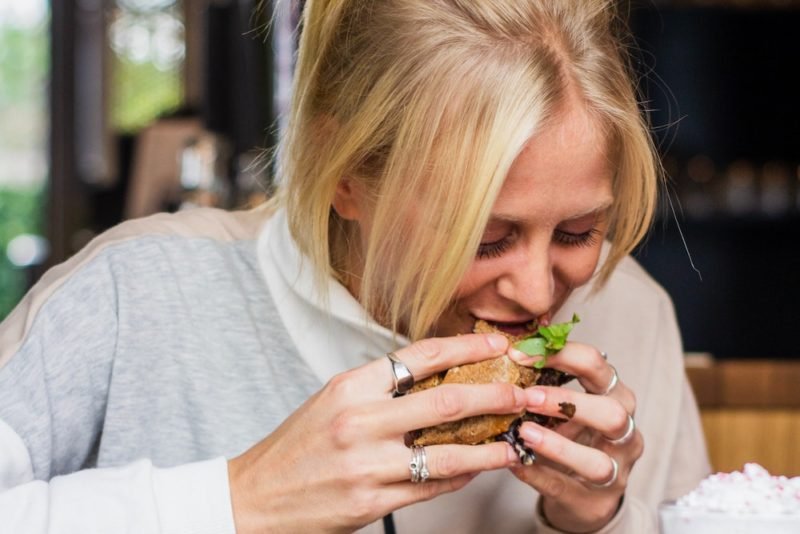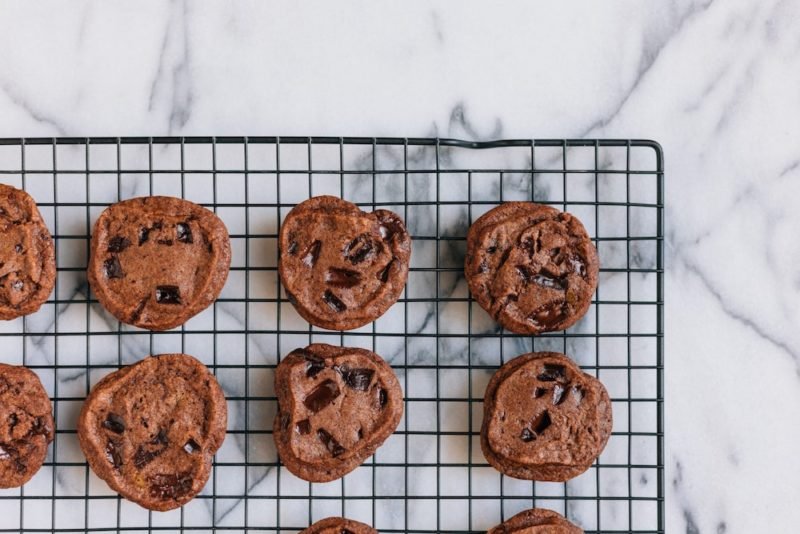
Have you heard the term “food freedom” on social media, or elsewhere? Did you wonder, “What is that about…and do I need it?” Maybe you knew it was something you needed, but didn’t know how to go about it.
To have food freedom is to be free from the food rules that can end up controlling our lives in big and small ways. This includes rules associated with weight loss diets as well as rules associated with diets, protocols, reboots, kickstarts and plans that promote “optimal” health and wellness. These rules generally come with a side helping of morality, whether overt or covert—you’re “good” if you follow the rules, you’re “bad” if you don’t. Enter guilt, stage left.
Therefore, food freedom is more than just freedom from rules. It’s freedom from the idea that our worthiness as a human, our right to belong, is dependent on how we eat.
The life-changing magic of saying, “Bye, bye, rules”
If you’ve been striving to strictly adhere to food rules for years—or decades—by counting calories, counting grams of carbs or fat (or both), avoiding all traces of added sugar, feeling guilty when you don’t buy organic produce or when you say “yes” to dessert or a second helping, food freedom can be not just game changing, but life changing.
Why? Because food freedom gives you your life back. When you’re no longer obsessing about food (and your body, because cultivating food freedom needs to pair with body freedom), and no longer getting mired in guilt about what you ate, didn’t eat, or want to eat but “shouldn’t,” a whole new world opens up. You suddenly have the mental bandwidth to fully engage in your relationships, your hobbies, your life.

Sounds good, but where’s my roadmap?
If your relationship with food has been far from free, then there’s no magic pixie dust that will bestow food freedom upon you overnight. It takes work, but that’s OK, because it’s meaningful work. It’s helpful to have a guide for this work, but it’s also important to beware of false prophets. Let me explain.
If you Google “food freedom,” the top results will take you to the Whole 30 program. Despite the fact that they promote “food freedom” in their marketing copy, Whole 30 is an extremely restrictive diet, and that is NOT a path to food freedom. I’ve known people who do Whole 30 and walk away unscathed (and some of the recipes are quite good), but I’ve known more who end up with an even more messed up relationship with food. I don’t recommend it.
A far better roadmap is Intuitive Eating. Developed by registered dietitians Evelyn Tribole and Elyse Resch 25 years ago (the first edition of the book was published in 1995, the fourth edition was released yesterday), Intuitive Eating is based on a set of 10 principles—which serve as guidelines, not rules. (I point that out, because Intuitive Eating is frequently unfairly and incorrectly co-opted by diet culture, and morphed into a sort of “hunger-fullness diet that turns the guidelines into strict rules without understanding the context of those guidelines.)
While all of the principles contribute to reclaiming food freedom, the principle of “Make Peace With Food” is perhaps the most obvious correlate.

Food freedom vs. food free-for-all
“Make Peace With Food,” sometimes known as the unconditional-permission-to-eat principle, is about letting go of the food rules and restrictions that can lead to a deprivation mindset, and to feelings of being out-of-control when you do eat the “forbidden” food. It also takes any ideas of morality out of the equation. (Broccoli and green jellybeans aren’t nutritionally equivalent, but they are morally equivalent.)
A key element of making peace with food / permission to eat that is sometimes missed, especially by individuals who try to practice Intuitive Eating based on skimming the highlights rather than actually reading the book and/or working with a certified Intuitive Eating counselor is eating with attunement. In other words, how does the food you eat feel in your body?
Permission to eat without attunement can cause you to feel like you are in free-fall, like now that you’ve given yourself permission to eat cookies, you will eat nothing but cookies and never stop eating cookies.
Permission to eat with attunement will help you stay balanced. Maybe you go a little bananas with cookies at first (and that’s OK), but pretty soon you’ll realize that a cookie-rich diet doesn’t feel all that great, and maybe a little protein and veggies sounds pretty good. You eventually reach the point where cookies are neutral—you have them sometimes, sure, but they loose their forbidden-food allure. You are free to choose to eat cookies or not based on whether you’re in the mood for a cookie and how good the cookies are, and you might just as easily have one as decline one.

Who benefits most from food freedom?
Um, everyone? Seriously, everyone can benefit from food freedom. Those who already have it are benefitting from it, and those who don’t have it can benefit from it. The more entrenched you are in diet rules, the more time you spend every day thinking about food and your body, the more you will notice the benefits. Kind of like you appreciate a glass of water more when you are feeling parched than you do when you are just slightly thirsty.
If food freedom is something you would like to enjoy, I encourage checking out the new edition of “Intuitive Eating.” You can also join my private “Mind, Body and Soul Society” Facebook group.
Disclaimer: All information provided here is of a general nature and is furnished only for educational purposes. This information is not to be taken as medical or other health advice pertaining to an individual’s specific health or medical condition. You agree that the use of this information is at your own risk.
Hi, I’m Carrie Dennett, MPH, RDN, a weight-inclusive registered dietitian, nutrition therapist and body image counselor. I offer compassionate, individualized care for adults of all ages, shapes, sizes and genders who want to break free from eating disorders, disordered eating or chronic dieting. If you need to learn how to manage IBS symptoms with food, or improve your nutrition and lifestyle habits to help manage a current health concern or simply support your overall health and well-being, I help people with that, too.
Need 1-on-1 help for your nutrition, eating, or body image concerns? Schedule a free 20-minute Discovery Call to talk about how I can help you and explore if we’re a good fit! I’m in-network with Regence BCBS, FirstChoice Health and Providence Health Plan, and can bill Blue Cross and/or Blue Shield insurances in many states. If I don’t take your insurance, I can help you seek reimbursement on your own. To learn more, explore my insurance and services areas page.
 Print This Post
Print This Post






